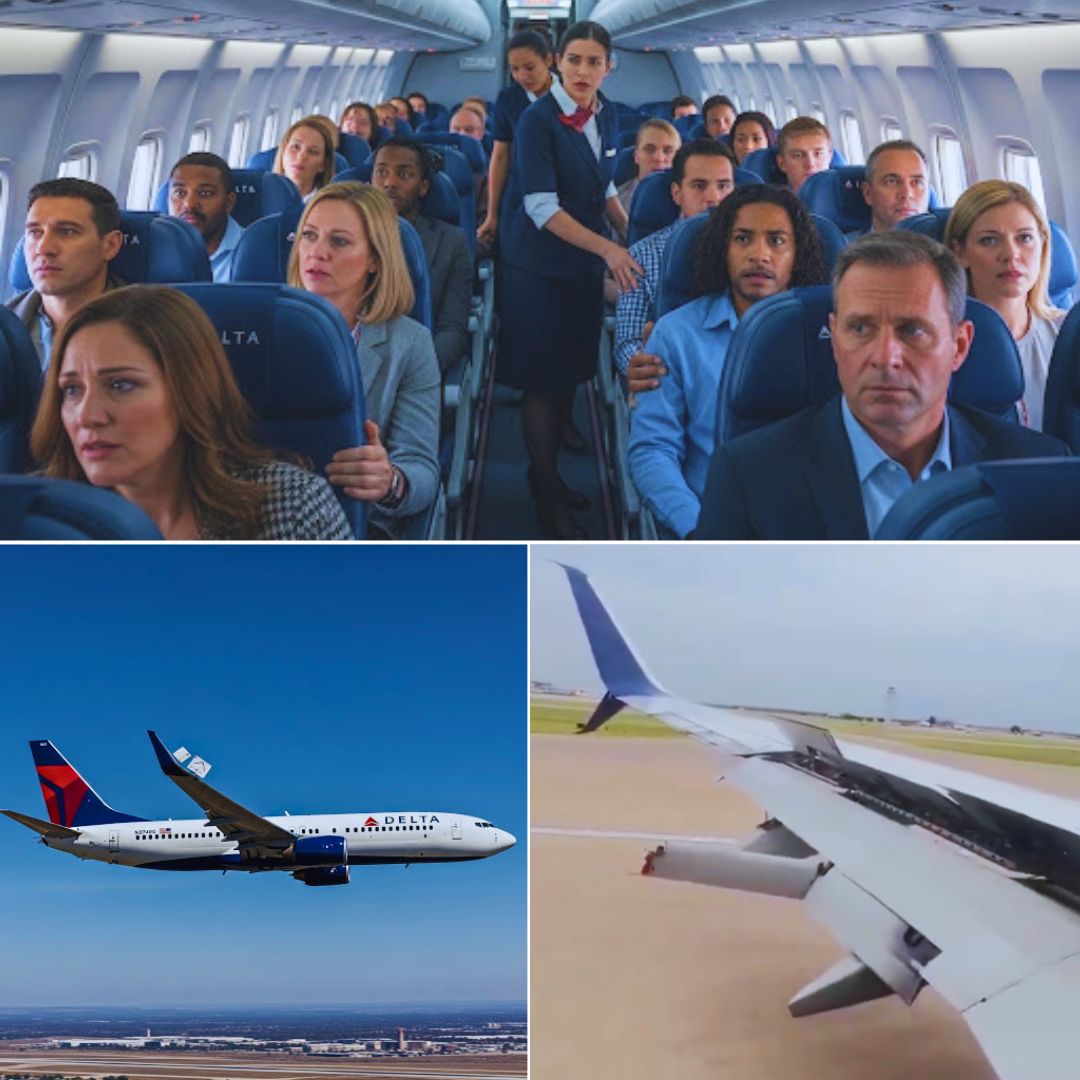On August 19, 2025, a Delta Air Lines Boeing 737-800 experienced a startling mechanical incident when a portion of its left wing flap partially detached mid-air before landing safely at Austin-Bergstrom International Airport in Texas.
The flight, operating from Orlando to Austin with 62 passengers and six crew members on board, reported no injuries, but the event has prompted the US Federal Aviation Administration (FAA) to launch a thorough investigation into the incident. Delta Air Lines has cooperated fully with regulatory authorities, emphasising that passenger safety remains their top priority while the aircraft remains grounded for inspection and repairs.
The Incident: Partial Flap Detachment Mid-Flight
According to eyewitness accounts from passengers, the left outer trailing edge flap of the Boeing 737-800 suddenly began to swing erratically during the aircraft’s descent. The flap partially detached yet remained connected via the inboard hinge, preventing a complete separation that could have endangered the aircraft’s stability.
Passengers described the situation as unsettling but handled skillfully by the flight crew, who managed to land safely despite the unusual wing configuration. The flap’s malfunction occurred approximately minutes before touchdown, prompting emergency protocols to ensure a stable, secure landing.
Officials from the FAA have emphasised the seriousness of the incident but underlined that there was no immediate danger to lives given the swift and professional response from the pilots. The FAA investigation will explore various possibilities such as maintenance errors, mechanical wear and tear, or potential manufacturing defects that might have contributed to the flap’s failure.
A Delta spokesperson expressed deep regret for the distress caused but reassured travellers of the airline’s steadfast commitment to safety and transparency during the ongoing inquiry.
The Importance of Wing Flaps and Aircraft Age
Wing flaps are essential aerodynamic components that increase lift during takeoff and landing, giving pilots better control at slower speeds. Any failure in flap operation can affect flight safety, making this incident critical despite the absence of immediate harm. The Boeing 737-800 involved in this event is more than two decades old, raising questions about the challenges inherent in operating older aircraft models.
Maintenance experts point out that ageing aircraft require more rigorous checks due to parts susceptibility to fatigue and degradation over time. Flaps and their hinges, subjected to continual mechanical stress, are particularly vulnerable. Past incidents involving 737 models have heightened attention on ensuring adherence to thorough maintenance schedules and employing modern inspection technologies to detect potential weaknesses before failures occur.
Broader Safety Implications and Regulatory Oversight
This incident comes amid increasing scrutiny of Boeing and its classic 737 series in the aviation industry. While no immediate groundings or regulatory directives have been issued, the FAA’s investigation underscores the regulatory imperative to maintain high safety standards. Aviation authorities globally face a difficult balance: sustaining trust in commercial air travel while constantly adapting safety regimes to evolving technological and operational realities.
The layered safety ecosystem comprising regulators, manufacturers, maintenance crews, and crew training has historically prevented many potential tragedies. This event serves as a reminder of ongoing vigilance required to keep air travel safe and reliable. It also fuels a wider debate about the use of older fleets and the pace of fleet modernisation, issues many airlines and regulators grapple with worldwide.
The Logical Indian’s Perspective
The safe landing of the Delta flight despite the partial flap detachment is a testament to the extraordinary skill of the flight crew and the multiple safety mechanisms in place. Yet, it also reflects the fragile nature of public trust in aviation safety.
At The Logical Indian, we believe that incidents like these must lead to greater accountability and openness from all stakeholders-airlines, manufacturers, and regulators alike. Promoting transparency and proactive safety improvements should take precedence over reactive crisis management.
Moreover, this incident calls for empathy toward passengers who live with underlying anxieties about flight safety and demand honest communication from airlines and overseers. Positive social change in aviation depends not just on technology, but also on fostering dialogue rooted in mutual respect and shared responsibility.













